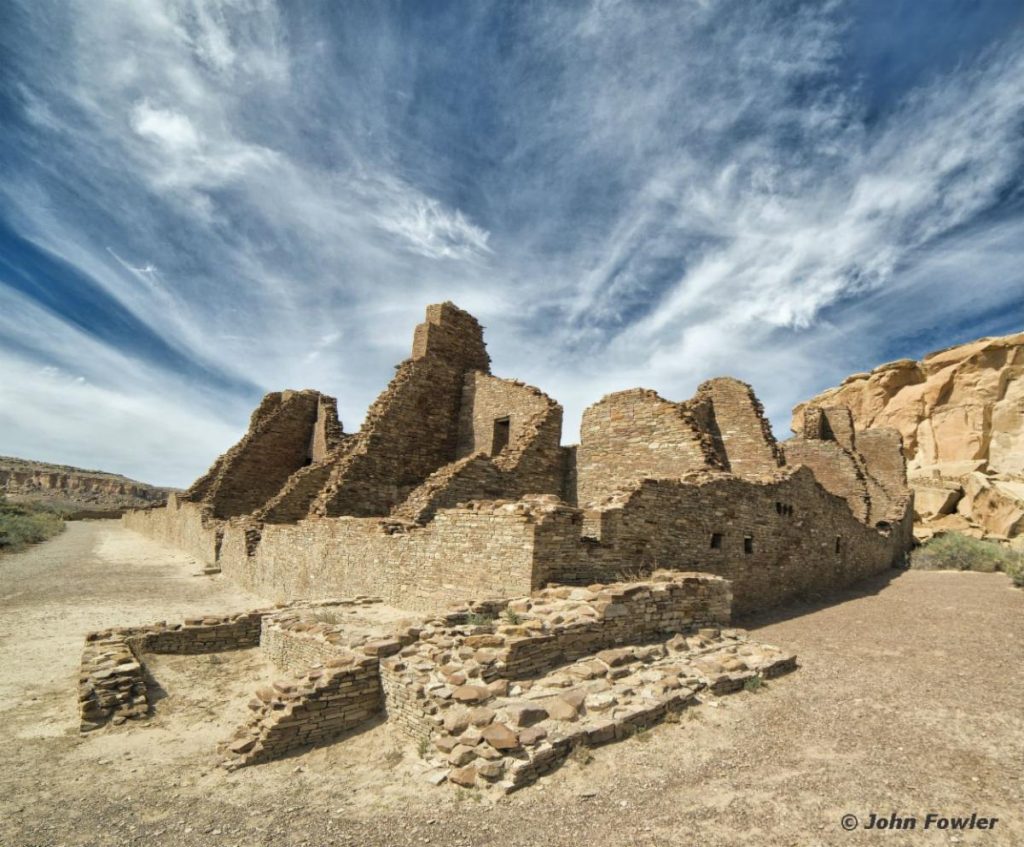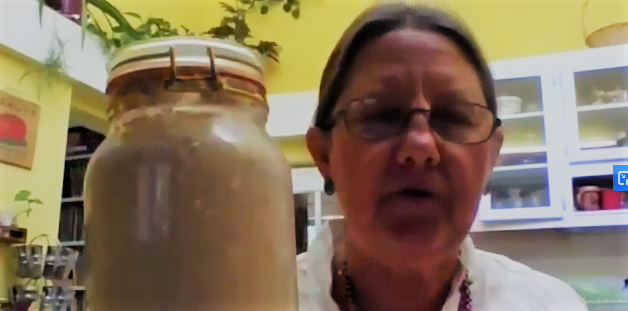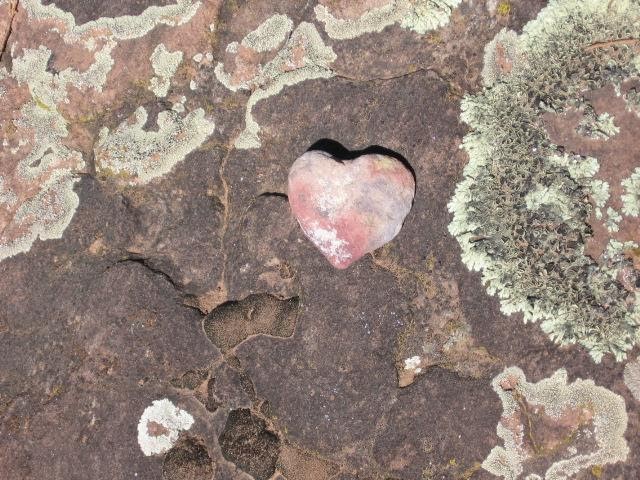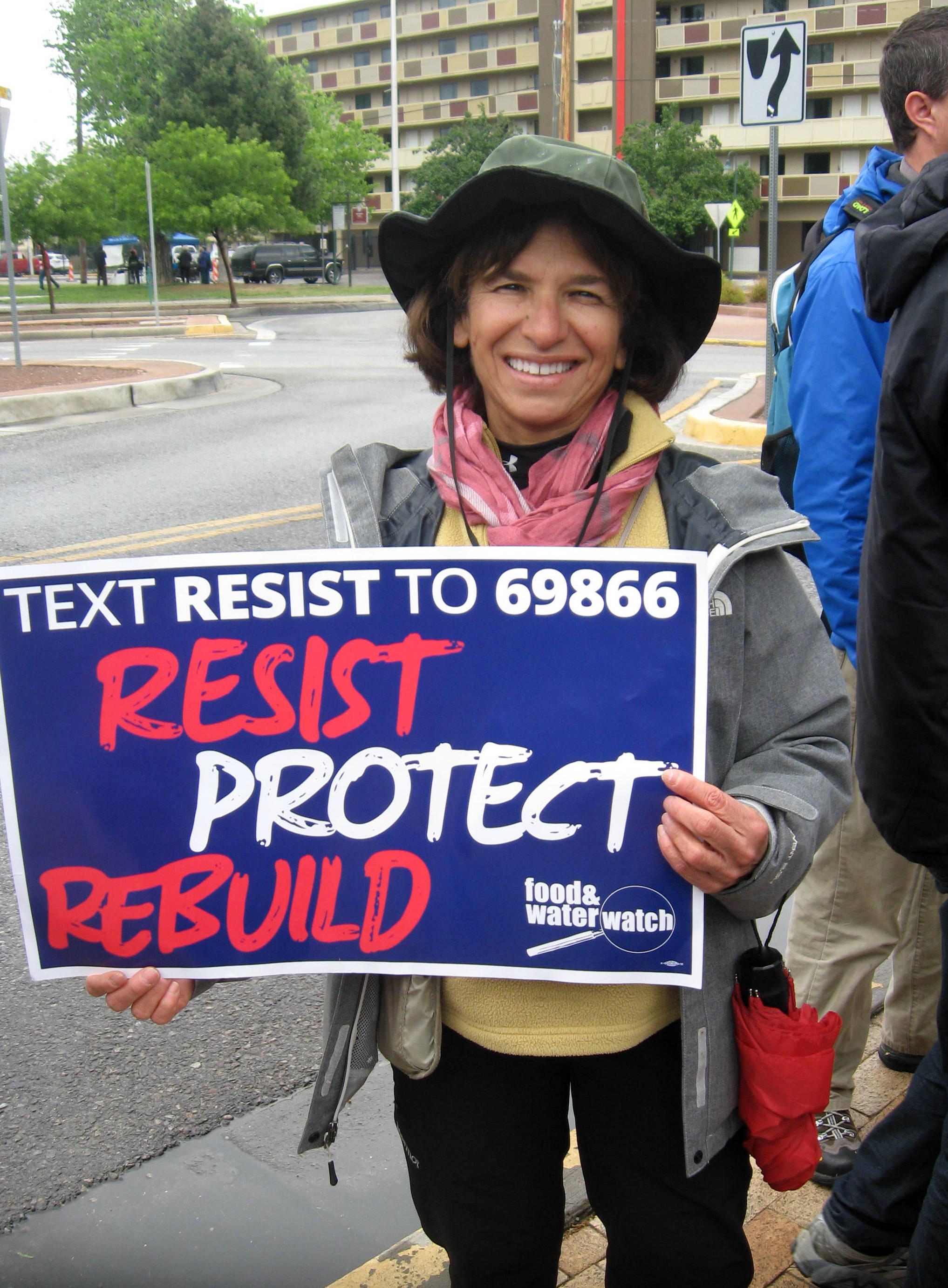Via Jackie Day
General News
EPA is shirking its duty during current crisis. According to an op-ed by Jordan Smith in the Albuquerque Journal, “We’re in a public health and economic crisis. We all know the impacts of this crisis will be felt for years. While we are all busy protecting our families and communities from COVID-19, the Trump Administration is taking advantage of this time to push through its agenda of weakening environmental regulations critical to safeguarding our public health.Once again, the Trump Administration isn’t considering people’s health, just industry profits. In the past three years, Trump’s overhauled Environmental Protection Agency has been repealing industry requirements to reduce methane and air pollution from oil and gas wells. And now, the EPA – whose mission is to protect the American people’s access to clean air and water – announced it may not penalize industry for violations or require monitoring for the indefinite future, claiming the COVID-19 pandemic will prevent the industry from complying with environmental laws. These are the very laws that protect our public health. When we are already showing such deficits in that regard, is now the time to loosen public health protections? The last thing our strapped medical institutions and personnel need is increased pollution directly impacting respiratory health, as oil and gas emissions do. The oil and gas industry is the single largest source of methane emissions, a potent greenhouse gas released along with harmful chemicals during oil and gas operations. More troubling, the National Oceanic and Atmospheric Administration discovered methane has reached a new record high, with this year being the third-largest increase going back 20 years.
And just last week, the Environmental Defense Fund with its scientific partners released new data from the Permian Basin of West Texas and southeast New Mexico revealing methane emissions from the oil and gas industry in the basin are triple the national average reported by the EPA. These findings make the EPA’s blanket refusal to enforce basic environmental laws aimed at reducing such emissions and pollution during this pandemic even more egregious. COVID-19 has highlighted an inextricable link: a healthy economy relies on a healthy population. We at Climate Advocates Voces Unidas (CAVU) understand the oil and gas industry is vital to New Mexico’s economy and that it too is suffering during this crisis. However, this doesn’t constitute a license to pollute. In order for oil and gas companies to operate, they should abide by their responsibility to protect health, safety and the environment. By allowing the industry to pollute to compensate for their losses, they put everyone else at risk, including the industry’s own long-term economic outlook. The current COVID-19 crisis underscores the critical need for the EPA to do its job, protecting the economy and public health by serving the people. At CAVU, we have been working diligently for the past three years as part of a broad coalition of New Mexicans to put commonsense methane rules in place for the oil and gas industry. Gov. Lujan Grisham’s pledge to enact nationally leading methane rules in New Mexico shows her wisdom and leadership in the face of national rollbacks. And we applaud New Mexico Environment Department Secretary James Kenney for taking a more strategic approach by evaluating companies’ requests to suspend monitoring or environmental reporting on a case-by-case basis. We encourage state regulators to make it clear that cutting corners on environmental safeguards will not be tolerated in New Mexico! Visit our website, CAVU.org, and tell the EPA to support environmental protection as an essential service, and demand that the people who fulfill these vital roles be given the tools they need to work safely. Jordan Smith is the executive director of Climate Advocates Voces Unidas, a nonprofit that uses visual storytelling and community engagement to support local solutions to the global climate problem.” [Albuquerque Journal, 5/3/20 (=)]
Rising Natural Gas Prices Are A Hot Bet. According to the Wall Street Journal, “Natural gas is flaring up. Investors, who just weeks ago shunned the fuel and the companies that sell it, are unwinding wagers that prices will fall, bidding up producers’ beaten-down shares and even buying their new bonds. The reason for optimism: The historic collapse in crude prices thanks to the new coronavirus has energy producers racing to close oil wells. Shutting in productive wells in crude-drilling regions like North Dakota and West Texas not only keeps oil in the ground and off the flooded market, it also chokes off a lot of gas that is extracted as a byproduct. When crude prices last month dipped below $0, natural gas prices had their best day in more than a year, popping 9.75% on the prospect that many money-losing wells will be capped. Meanwhile, coal, not gas, has suffered the worst of the reduced demand for electricity during the pandemic. Coal’s share of U.S. electricity generation is down by about a third from last year, according to Energy Information Administration data. The result is renewed interest from investors in natural gas and its producers. Hedge funds and other speculators on April 21 became net long—with more wagers on rising gas prices than bets counting on decline—for the first time since last May, according to Commodity Futures Trading Commission data. They added bullish positions this week. Though the difference between long and short bets is relatively small, it represents a dramatic shift in sentiment. Gas speculators were piled into their largest net short position on record in mid-February.” [Wall Street Journal, 5/1/20 (=)]
Op-Ed: Does Fracking Have A Future? According to an op-ed by Ted Ross in the Boulder Daily Camera, “While we are in the midst of the public health phase of the COVID-19 pandemic, it is too early to spend too much time thinking about what happens next, but there are certainly some emerging realizations that will deserve our attention as a new normal emerges. One possible transformation that could have a dramatic and positive impact on the health of our watersheds is the end of fracking and shale oil extraction. Capitalism has a long history of boom and bust investment cycles and, while it may be wishful thinking from a Waterkeeper perspective, it is possible to see how the end of fracking is near. The pandemic is illuminating the link between air quality and health. Recent research shared by The Guardian draws an explicit correlation between COVID-19 deaths and air pollution levels. The fossil fuel industry from extraction to consumption is considered to be one of the greatest contributors to high levels of air pollution. The emerging realization of the health impacts of the industry, including fracking wells, should increase public awareness and resistance. The business model driving the shale and fracking industry just might have been driven more by hedge fund investments than actual extraction profits. It is becoming clear that the financial investments for the initial drilling and that ongoing operations never delivered the profitability that was promised. According to the New York Times in the last 10 years over $400 billion of high-yield debt has been issued by the energy industry in the United States without a clear path to profitability.” [Boulder Daily Camera, 5/2/20 (=)]
Group Wanting To Ban Horizontal Fracking Takes Another Step Toward Getting On The Ballot. According to Michigan Radio, “The Committee to Ban Fracking in Michigan has delivered its petition signatures to the Secretary of State’s office. The group hopes its initiative is on the ballot in November. ‘Our initiative will ban horizontal fracking and the waste that comes from horizontal fracked wells as well as change the state’s policy about climate change and maximizing oil and gas production,’ said LuAnne Kozma, the campaign director of the committee. It’s been in court fighting the state for nearly four years. Kozma says the fight is not over. The group fully expects the signatures to be rejected because it took too long to gather the signatures. ‘After that rejection by the Board of State Canvassers, what’s next is we appeal that decision right to the Michigan Supreme Court,’ Kozma said. At issue is whether the state can limit petition drives to 180 days to collect signatures. The Committee to Ban Fracking argues that restriction is limited to petition drives to change the Constitution and not all ballot initiatives to change the law.” [Michigan Radio, 5/1/20 (=)]
Judge Vacates Oil And Gas Leases On 145,000 Acres In Montana. According to the New York Times, “A federal judge on Friday vacated 287 oil and gas leases on almost 150,000 acres of land in Montana, ruling that the Trump administration had improperly issued the leases to energy companies in 2017 and 2018. The judge, Brian Morris of the United States District Court for the District of Montana, said the Interior Department’s Bureau of Land Management failed to adequately take into account the environmental impacts of the drilling. In particular, Judge Morris found that the officials had not accounted for the drilling’s impact on regional water supplies and the global impact that the increased drilling would have on climate change. The decision is at least the third such legal loss that criticized the Trump administration for failing to consider the cumulative impacts of expanding fossil fuel production on the warming of the planet. It comes as the Trump administration is seeking to eliminate the legal requirements that the government take such impacts into account at all. Judge Morris wrote that in issuing the leases, the Trump administration’s failure to provide the legally required environmental analyses ‘largely relates to the absence of analysis rather than to a flawed analysis. In other words, the Court does not fault B.L.M. for providing a faulty analysis of cumulative impacts or impacts to groundwater, it largely faults B.L.M. for failing to provide any analysis.’ Judge Morris sent the case back to the Bureau of Land Management and ordered the agency to perform the legally required environmental analyses before reissuing the leases.” [E&E News, 5/1/20 (=)]
How Natural Gas Is Withstanding The Energy Market Collapse. According to the Washington Examiner, “Natural gas is withstanding the coronavirus-fueled economic crash in a way that its closely associated relative, oil, isn’t. Oil prices have reached record lows, with the U.S. benchmark oil price briefly dropping below zero last month after trading at around $60 per barrel at the start of 2020. The U.S. natural gas price, meanwhile, is stable, staying below $2 per million British thermal units, or MMBtu, a historically low level it has been hovering at for a while due to a glut produced from the shale boom. Oil producers are shutting in their wells, prompting tens of thousands of layoffs, because the pace of the price collapse was so sudden, caused mostly by the fact that the pandemic has crushed demand for transportation fuels made with oil, as people forgo driving and flying. ‘The negative impact on demand in gas markets is not as significant as it is with oil because it’s not being driven by transportation,’ said Dustin Meyer, director of market development at the American Petroleum Institute, the largest U.S. oil and gas lobbying group. U.S. natural gas production, by contrast, has remained steady as people stuck at home depend on it for power and heat. Because it’s been so cheap for so long, natural gas in recent years passed coal as the most used fuel for electricity, at 38% of the mix in 2019. While some important uses for gas are falling, without the need to power or heat large office spaces and some nonessential manufacturing facilities, demand has picked up in other places, such as in feedstock for plastics used to make key health equipment.” [Washington Examiner, 5/2/20 (=)]
Is Gas Really Better Than Coal For The Climate? According to E&E News, “America’s carbon dioxide emissions have fallen consistently over the last 15 years in large part because power companies have swapped coal for natural gas. Now it appears that those CO2 reductions might be smaller than previously thought. A recent study by the Environmental Defense Fund found that 3.7% of natural gas produced in the Permian Basin leaked into the atmosphere. That’s enough to erase the greenhouse gas benefits of quitting coal for gas in the near term. ‘The first thing to say is the 3.7% number really jumps off the page,’ said Daniel Raimi, a researcher at Resources for the Future. ‘It is a really high emission rate. It is yet another indicator that the U.S. oil and gas system emits more than current EPA estimates would suggest.’ The study by EDF is significant on several fronts. Methane, the primary component of natural gas, produces about half the emissions of coal when burned, but it’s a much more powerful greenhouse gas when leaked into the atmosphere. Scientists have long struggled to pinpoint just how much methane is being released into the atmosphere. A series of earlier studies coordinated by EDF and hundreds of other researchers indicated that the U.S. oil and gas system leaked on average 2.3% of all the gas it produced. That’s about 60% more than the leakage rate reported by EPA, at 1.4%.” [E&E News, 5/4/20 (=)]
Judge Tosses 287 Interior Leases Over NEPA Review. According to E&E News, “Environmental groups are claiming a legal victory against the Trump administration after a federal judge tossed 287 oil and gas leases on federal land for failing to consider impacts on the climate and groundwater. On Friday, Montana District Chief Judge Brian Morris vacated a pair of lease sales from December 2017 and March 2018 that altogether covered nearly 150,000 acres in eastern and central Montana. WildEarth Guardians and the Montana Environmental Information Center, along with two landowners in the state, had challenged the leases for violating the National Environmental Policy Act. They argued that the Bureau of Land Management did not consider the combined emissions impacts of the lease sales in the Hi-Line, Billings, Butte and Miles City planning areas, and inaccurately found the leases wouldn’t have a significant impact on the state, by assessing each of them individually instead of referencing the other prospective drilling sites. They also warned the federal agency did not consider the risks of groundwater contamination from shallow hydraulic fracturing or the failure to extend surface casings — large pipes cemented in place to protect aquifers — below drinking water sources. The challengers alleged that BLM failed to assess ‘reasonable alternatives’ that would have reduced the impacts to Montana’s water supply. Morris, an Obama appointee, sided with the plaintiffs in their complaints against the level of analysis in the agency’s four environmental assessments for the lease sales.” [E&E News, 5/4/20 (=)]
Exxon Reports Historic Loss, Closes 75% Of Permian Rigs. According to E&E News, “The biggest U.S. oil producers reported historic losses last week and predicted that it could take months to recover as the coronavirus pandemic continues to sweep through the world’s economy. Exxon Mobil Corp.’s $610 million haircut was its first quarterly loss since at least 1988, a decade before the merger that made it the biggest oil company in the country. ConocoPhillips also lost $1.7 billion in the first three months of the year. Chevron Corp., the second-largest producer, reported a $3.6 billion net profit partly because of improved finances at its refineries but warned it would be cutting production in the Permian Basin. The companies’ comments during calls with stock analysts cemented a consensus that the pandemic will have a longer-term impact on the oil industry than previously expected. ‘We’ve never seen anything like what the world is experiencing today,’ Exxon CEO Darren Woods said. The results came after their European peers, including BP PLC and Royal Dutch Shell PLC, also reported a bleak quarter. Shell cut its shareholder dividend for the first time in decades (Energywire, May 1). ‘These numbers confirm the strain the oil and gas industry is under,’ said Ella Benson Easton, an analyst at the consulting firm GlobalData. ‘The real difficulty for the industry is gaining a degree of stability, particularly given the uncertainty around the full impact of the pandemic on things such as customer behavior and investment priorities.’” [E&E News, 5/4/20 (=)]
Judge Cancels Hundreds Of Oil, Gas Leases In Montana. According to the Associated Press, “A federal judge on Friday canceled nearly 300 oil and gas leases in Montana because government officials failed to properly study the risks of all that drilling to the environment and water supply. The U.S. Bureau of Land Management sold 287 leases covering approximately 227 square miles (587.93 square kilometers) of public land in central and eastern Montana in 2017 and in 2018. The agency’s environmental reviews concluded that drilling would carry minimal risk to the areas’ natural resources. Three residents and two environmental groups sued in 2018, saying the agency didn’t consider the risks of shallow hydraulic fracturing on groundwater or the cumulative effects of adding hundreds of drilling sites to the landscape. They also said the agency did not address the leases effects on the release of greenhouse gases and climate change. U.S. District Judge Brian Morris sided with the plaintiffs, saying BLM officials didn’t study what they were supposed to under U.S. environmental laws before going ahead with the lease sales. ‘The Court does not fault BLM for providing a faulty analysis of cumulative impacts or impacts to groundwater, it largely faults BLM for failing to provide any analysis,’ Morris wrote. The judge chided the BLM’s attorneys for citing irrelevant findings from their environmental reviews to answer the plaintiffs’ allegations, the judge said. ‘A weatherman proves unhelpful if he says ‘it’s going to be windy tomorrow’ when asked if it will rain,’ Morris wrote in his ruling. ‘BLM proves just as unresponsive here.’” [Associated Press, 5/1/20 (=)]
The Great Shale Shut-In Has Begun, Making Good On Trump’s Pledge. According to Bloomberg, “American shale explorers are rapidly crimping production in the country’s most prolific oil fields as the worst price crash in history threatens the industry’s survival. Three of the biggest oil explorers in the U.S. — Exxon Mobil Corp., Chevron Corp., and ConocoPhillips — plan to curb as much as 660,000 barrels a day of combined American output by the end of June. Across the county, crude production by all companies has already tumbled about 1 million barrels a day since mid-March, when OPEC and its allies clinched an historic deal to trim global supply. It’s too soon to tell how long the reductions will last but if implemented for a full year, they would overshadow any previous American production slide going back to at least 1984. Moreover, the pull-back puts the U.S. on track to fulfill the Trump administration’s pledge to removing 2 million barrels of daily supplies through market attrition. With the new reductions announced just two weeks after crude prices turned negative for the first time on record, resuscitating the market will come at a steep cost for an industry facing bankruptcies, job cuts and consolidation. For some explorers, austerity means slowing growth plans, while for others it means outright subtractions of oil volumes. Almost 40% of oil and natural gas producers face insolvency within the year if crude prices remain near $30 a barrel, according to a survey by the Federal Reserve Bank of Kansas City.” [Bloomberg, 5/1/20 (=)]








